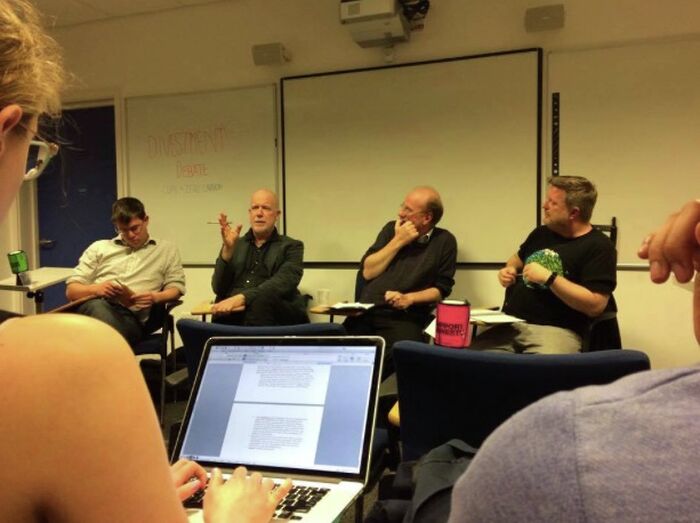Everything you need to know about the Cambridge divestment campaign
Varsity rounds up the debate thus far

The University’s divestment working group has announced that it will host two ‘town hall’ style consultation meetings to encourage discussion on the issue of divestment and gather the opinions of staff and students. The meetings mark a further opportunity for members of the University community to contribute to the long-running debate surrounding the issue of whether the University should withdraw its investments from fossil fuel industries.
Fossil fuel divestment campaigns call for governments, organisations and individuals to withdraw their assets from oil, coal and gas-related companies. Rather than divesting fully, the University has already committed to ‘blacklisting’ investments in coal and tar sands companies, which means that it will never invest in these companies again. The University had also retained its investments in oil and gas companies. According to student action group People & Planet, which campaigns for divestment across the UK higher education sector, the Cambridge invests £377,431,354 in fossil fuels, equivalent to 6.4% of its total endowment fund of £5,900,000,000.
Across the UK higher education sector, 54 universities have committed to divestment, according to People & Planet. Globally, it is estimated that the current value of institutions committed to divestment is £2.7tn.
The University is also heavily dependent on fossil fuel industry for its research funding. According People & Planet’s statistics, the University receives research funding from companies such as BP, Shell and Exxon Mobil. The group also says that, between 2009-2014, the University received over £15m in donations from the fossil fuel industry.
The debate around divestment stretches all the way back to 2008, when the University Council approved a Statement of Investment Responsibility that committed the University to invest with “concern for sustainability and its relationship with the environment”. However, student interest was not mobilised until 2015, when CUSU Council first passed a motion in support of divestment. The motion stated that “it is morally wrong for the University to invest in fossil fuel reserves while leading the way in sustainability research”.
However, because the motion only obligated CUSU to take a position on divestment, rather than actively campaign on the issue, the onus has been on student-run campaign groups to catalyse calls for change. The most active of these has been Zero Carbon, who have organised a variety of protests, including covering Cambridge in red ribbon and conducting a football match on Senate House Lawn.
The University has, however, been slow to act on the issue of divestment. A Grace calling for divestment was in passed in 2017 by Regent House, the University’s governing body, but as Regent House does not directly control the University’s investments, their decision did not have much influence in practice. University Council, which does dictate how the University invests, has historically taken a much more equivocal stance on the issue.
The new working group, instigated in May this year, will consider “the different approaches the University might take to issues associated with disinvestment from fossil fuel industries,” and additionally “how those approaches might impact upon the University’s mission ‘to contribute to society through the pursuit of education, learning, and research at the highest international levels of excellence’”. The working group aims to publish a report within a year.
The ‘town hall’ meetings, which will take place at 1pm on October 25th and 4pm on November 9th at Lady Mitchell Hall on the Sidgwick site, will provide a forum for Cambridge staff and students to voice their opinions. Attendance at the events will be ticketed and the working group is currently accepting written statements from potential contributors, who will be granted five minutes to speak at the meetings. Professor Dame Athene Donald, the group’s chair, said that the consultations would “offer a new departure for the University in terms of open consultation” and were a “key part” of the group’s work.
 Comment / Cambridge’s tourism risks commodifying students18 April 2025
Comment / Cambridge’s tourism risks commodifying students18 April 2025 News / Cambridge student numbers fall amid nationwide decline14 April 2025
News / Cambridge student numbers fall amid nationwide decline14 April 2025 News / Greenwich House occupiers miss deadline to respond to University legal action15 April 2025
News / Greenwich House occupiers miss deadline to respond to University legal action15 April 2025 Comment / The Cambridge workload prioritises quantity over quality 16 April 2025
Comment / The Cambridge workload prioritises quantity over quality 16 April 2025 Sport / Cambridge celebrate clean sweep at Boat Race 202514 April 2025
Sport / Cambridge celebrate clean sweep at Boat Race 202514 April 2025





